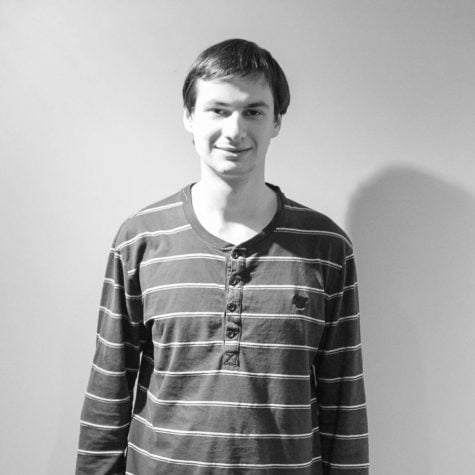For the last two and a half months, the protestors of the EuroMaidan movement have occupied Independence Square in Kyiv, Ukraine. During this time, they have faced freezing temperatures, police violence and harsh anti-protest laws.
Why have they remained?
“For the idea: be free in (a) European country,” Kyiv-based journalist and student Yulia Zakutnia told The Guilfordian in an email.
“The name ‘Ukraine’ means ‘on the borderline,’” explained Wall Street Journal reporter Matthew Kaminski in a phone interview with The Guilfordian.
Since the fall of the USSR in 1991, Ukraine has been pulled between the two forces on either side of that borderline — the European Union in the West and Russia in the East.
The tension reached a breaking point in November when Ukrainian President Viktor Yanukovych abandoned an agreement that would have strengthened ties with the EU. Instead, he accepted $15 billion from Russia.
“70 years of Soviet control makes (Ukraine) a place where people in power think they can do what they want,” said Professor of Peace & Conflict Studies Jeremy Rinker.
The people of Ukraine disagreed.
On Nov. 21, Ukrainian protestors — many of them university students — gathered in Independence Square in reaction to Yanukovych’s sudden change in policy. They took the name EuroMaidan, combining the Ukrainian word “Maidan” (meaning square) with “Europe,” their goal.
“There are really many fantastic people (in the Square)!” said Zakutnia. “Cossacks, Afghani veterans … students who learn to cook Molotov cocktails … and grandmothers who do not let their grandchildren to go out, while they themselves are at the forefront.”
The Square is now a well-organized tent city, surrounded by anti-police barricades made of tires, sandbags and ice. Protestors have implemented a self-sufficient system of medical tents, latrines and a volunteer security force to keep out weapons and alcohol.
“Ukrainians like to drink … but the Square is like a dry college campus,” said Kaminski. This occupation has continued despite the government’s efforts to suppress it.
“From Nov. 21 to 30, people stood on EuroMaidan only for European integration,” said Zakutnia. “But after Nov. 30, when peaceful protesters were beaten … they began protesting against the violence and for the president’s impeachment.”
More clashes with the police followed, and, as of Jan. 31, the police confirmed that three protestors had been killed. 54 have disappeared, according to the Kyiv Post, and many more have been injured or arrested. In one recent skirmish, 40 police officers were injured.
What will be the end result of this conflict?
Ukrainians are still searching for a clear answer.
“If I had to guess, in the short term, it is going to be very dangerous … and problematic,” said Kaminski.
Zakutnia, however, takes a more hopeful perspective of the future. “We know what we want … and we want Europe! We stand for that, for changing the government, because we know: we will achieve that.”
Until they do, the protestors in Independence Square remain.













